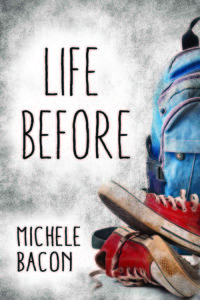“Courting the Reluctant Writer”
Disclaimer: I am not a certified teacher. In fact, I am in awe of anyone who can teach classes of students every single day. I lack the patience, training, and wherewithal to do the work you do. Thank you!
I have the good luck to instruct young writers through workshops in schools, bookstores, libraries, and writing clinics. I love helping young writers discover their voices and tell their stories. To that end, I’ve collected a bag of tricks to help draw out reluctant writers. To help you court reluctant writers, I’m sharing three:
Spelling, grammar, and punctuation don’t matter.
Students with ADHD, ASD, dyslexia, and a slew of other challenges, often feel throttled by proper spelling and grammar. Take away the mechanics of grammar, and you’re left with story.
So let go. Not forever, but for now. Removing those restrictions lets students write freely. It helps them find their voices and the stories they’re eager to tell.
I know grammar is important. (Full disclosure: Grammar may be my first love.) But while I’m nurturing young writers, I tell them to forget that “stuff.” Ignore the mechanics. Save grammar for another week. Every writer needs a copyeditor, anyway.
Show—don’t tell—teens that their voices are unique.
I use this every time I host a writing workshop for teens or tweens. After talking a little about voice and perspective, I explain that talking about writing gets you nowhere. You have to write.
I assign a scene—the same scene—to every student. The exercise is short and sweet—7-8 minutes of writing—and I write along with them. When time’s up, students share, and I respond with positive comments about how each piece is unique.
Reluctant writers aren’t the first to share, but after three or four students read their scenes, everyone gets the picture: you are unique. No one can write from your perspective.
This is especially effective if I read my own piece and cite details students included but I neglected or forgot. Never underestimate the power of being wrong.
Fan fiction is your friend.
This is my very favorite trick. I preface this exercise with a disclaimer about plagiarism. Nothing—nothing—is more freeing to a reluctant writer than writing in a world he already loves.
Hogwarts is already a fully-imagined school, complete with hidden passages, secrets, and hundreds of interesting students. Imagine you, a muggle, woke up in Harry Potter’s dormitory and had to fake your way through potions with Snape.
What if you had boarded Eleanor & Park’s yellow school bus as a fellow student? Show me their relationship and your bus ride through your own eyes.
If you were Trunchbull, how would you next thwart Roald Dahl’s Matilda? (This is particularly fun for late elementary school writers.)
Instead of struggling to imagine a scene, students start with Hogwarts, Rainbow Rowell’s vivid characters, or the evil Trunchbull’s avarice. Fan fiction is freeing, because the hardest work is done. Using a scene, character, or setting from a beloved book, students also come to writing with passion.
I love working with students to build characters, find their stories, or strengthen their prose. But those workshops—all of them—are infinitely easier if students are passionate. If they’re bought in, they’re digging deeper, focused, and ready to tell the best versions of their stories.
And then, eventually, I ask them to do more.
The thing is, the Harry Potter saga is (mostly) over. Roald Dahl has been dead more than 25 years. Eleanor & Park are good to go…but who is this new character my student has created on Eleanor & Park’s bus? Why is he watching Park court Eleanor instead of focusing on his own interests? What’s happening at his house?
That student has created a new character, sparked by fan fiction. What’s more, the spark and the passion will stay with that student. Insert that new character in a new scene, and the passion is still there. What’s more: sharing their passions will ignite new passions in their peers—inside the classroom.
Everyone wins.
I’m on the lookout for more tricks, but these three consistently inspire students to write; I hope one of them resonates with you.
*with great thanks to Jo Rowling, Rainbow Rowell, and Roald Dahl
About the Author: Michele Bacon writes contemporary fiction for adults and young adults. Most of her stories begin as ideas scrawled on random scraps of paper, stuffed into pockets or joining her computer-bag detritus. Life Beforeis her debut novel. Michele lives in Seattle, Washington, with her husband and three small children.
Life Before
About the Book: Seventeen years is a long time to keep secrets, so Xander Fife is very good at it: everyone believes he has a normal family. If he can just get through this summer, he’ll start his real life in college with a clean slate–no risk, no drama, no fear.
Xander’s summer plans include pick-up soccer, regular hijinks with friends, an epic road trip, and—quite possibly— the company of his ideal girlfriend, the amazing Gretchen Taylor.
Instead of kicking off what had promised to be an amazing summer, however, graduation day brings terror. His family’s secrets are thrust out into the open, forcing Xander to confront his greatest fear. Or run from it.
Armed with a fake ID, cash, and a knife, Xander skips town and assumes a new identity. In danger hundreds of miles from home, one thing is clear: Xander’s real life is already in progress and just getting through it isn’t enough.
Thank you, Michele, for this post, and thank you, Cheryl, for connecting us with Michele!




Love the idea of having a reluctant writer doing some fan fiction writing. I wish that writing was more like this, open to writing about what you want or are passionate about.